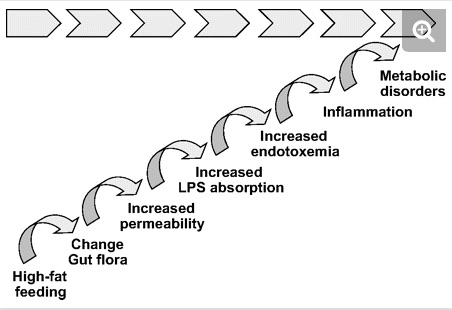Nutrigenomics, Chlorella and Weight Loss
Dear Friends
New studies show that Chlorella help us to reduce body fat percentage, improve fat and glucose metabolism, decrease weight, and reduce the risk factors involved with Metabolic Disease.
Therapeutic Food Protocol: Organic Chlorella
- Organic Chlorella– 5 tablets daily (C. vulgaris)
Food Science
Mizoguchi et al. (2008) in their research, Nutrigenomic studies of effects of Chlorella on subjects with high-risk factors for lifestyle-related disease, demonstrated that Chlorella intake, in 17 subjects with high risk factors for lifestyle-related disease (obesity, diabetes or hyperlipidemia) and 17 healthy subjects, results in noticeable reductions in body fat percentage, total blood serum cholesterol, and fasting blood glucose levels.
Their research confirmed that Chlorella intake brings about improvements in both fat metabolism and glucose metabolism. The expression of genes involved in the insulin signaling pathway were also affected by Chlorella vulgaris intake, especially those related to glucose uptake in tissue, providing support for the observation that Chlorella lowers blood glucose levels.
Vecina et al. (2014), Chlorella modulate insulin signaling pathway and prevents high-fat diet induces insulin resistance in mice, research goal was to evaluate the prophylactic effect Chlorella vulgaris on body weight, lipid profile, blood glucose and insulin signaling in liver, skeletal muscle and adipose tissue of diet-induced obese mice.
Their conclusion was that C. vulgaris supplementation (Chlorella) could be considered as an adjunctive therapy to decrease weight and improve glycemic status and reducing hs-CRP as well as improving liver function in patients with NAFLD.
Add Inulin fiber and Bifidobacteria to the protocol:
- Original Synbiotic Formula– 1 tsp daily (5 sp. LAB plus inulin).
Food Science:
Cani and associates (2008) found that bacterial lipopolysaccharide (LPS) levels set the tone of insulin sensitivity and the onset of obesity and diabetes. An increased gut permeability allowed for the passage of LPS through the gut wall into the systemic circulation. Thus, lowering plasma LPS concentration could be a potent strategy for the control of metabolic diseases.
Cani (2007, 2007a, 2008, 2009) demonstrated in their research that adding to the diet soluble fibers such as inulin (containing oligofructose chains found in the Original Synbiotic) stimulates the growth of Bifidobacteria sp., which caused a reduction in gut permeability, thereby reducing the levels of LPS systemically, and resulted in weight loss and reduced metabolic disorders.

Bibliography:
- Vecina et al. (2014). Chlorella modulate insulin signaling pathway and prevents high-fat diet–induced insulin resistance in mice. Life Sci; 95(1): 45-52.
- Mizoguchi et al. (2008). Nutrigenomic studies of effects of Chlorella on subjects with high-risk factors for lifestyle-related disease. J Med Food; 11(3): 395-404.
- Cani et al. (2009). Changes in gut microbiota control inflammation in obese mice through a mechanism involving GLP-2 driven improvement of gut permeability. Gut; 58(8): 1091-1103
- Cani et al. (2008). Changes in gut microbiota control metabolic endotoxemia-induced inflammation in high-fat induced obesity and diabetes in mice, Diabetes; 57:1470-8.
- Cani et al. (2007). Metabolic endotoxemia initiates obesity and insulin resistance. Diabetes; 56:1761-72.
- Cani et al. (2007a). Selective increases of Bifidobacteria in gut microflora improve high-fat-diet-induced diabetes in mice through a mechanism associated with endotoxaemia. Diabetologia; 50: 2374-83.
Sincerely yours,
Seann Bardell
We have developed our products based on scientific research and/or the practical experience of many healthcare practitioners. There is a growing body of literature on food based nutrition and supplements and their application in support of our health. Please use our products under the advisement of your doctor.
Green Facts:
 If the fructose in sugar and high fructose corn syrup has been considered alcohol without the buzz in terms of the potential to inflict liver damage, what about the source of natural fructose, fruit? See Dr. Michael Greger’s informative Video: If Fructose is Bad, What About Fruit? If the fructose in sugar and high fructose corn syrup has been considered alcohol without the buzz in terms of the potential to inflict liver damage, what about the source of natural fructose, fruit? See Dr. Michael Greger’s informative Video: If Fructose is Bad, What About Fruit?
|